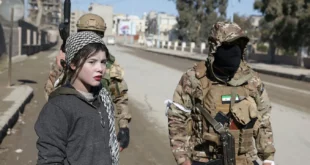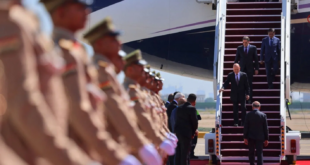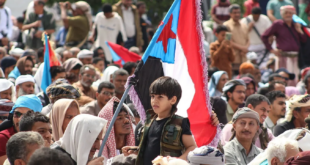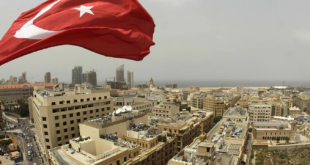The United States’ plans to levy sanctions against Russian President Vladimir Putin would be an “extreme” step that would signify a complete breakdown in ties between the two countries, the Kremlin said Thursday.
U.S. senators, with support from the White House, unveiled a package of hard-hitting sanctions Wednesday evening intended to “devastate” the Russian economy should Moscow invade Ukraine.
Among the measures would be personal sanctions against Putin, as well as several other top officials including Prime Minister Mikhail Mishustin and Foreign Minister Sergei Lavrov.
Sanctioning a head of state and other leading officials would be a rare move, as the U.S. has previously restricted its sanctions packages to lower-level officials.
“Introducing sanctions against the head of the government or the head of Russia is an extreme measure which is comparable to a breakdown in relations,” Kremlin spokesman Dmitry Peskov told reporters in a briefing, according to the state-run TASS news agency.
“What is Russia ready to do? Russia is always ready and will always do what is in the best interests of our country,” he added.
Under the draft legislation, the U.S. government would also be required to investigate and publish a report into the personal wealth and assets of Putin, his family members and any other people the U.S. believes to hold assets on his behalf.
Due to the U.S.’ leading role in the world economy, personal sanctions effectively prohibit individuals from traveling to or from accessing property and bank accounts held in most Western countries.
Talks between Moscow, Washington and NATO in Europe this week have so far failed to move the sides closer to a resolution of what Moscow has called “large and fundamental differences.”
Moscow wants legal guarantees that NATO will never admit Ukraine as a member and has called for troop deployments across the alliance to be rolled back to 1997 positions, before the bloc expanded into eastern Europe.
The U.S. has branded the proposals a “non-starter,” and high-level talks in Geneva and Brussels this week have not managed to bring the sides closer together.
Peskov on Thursday rejected NATO’s calls for Russia to de-escalate the situation by pulling back the estimated 100,000 troops that have been deployed close to the Ukrainian border.
“It’s hardly possible that NATO can dictate to Russia where it should move troops on its own territory,” he said.
 Eurasia Press & News
Eurasia Press & News




